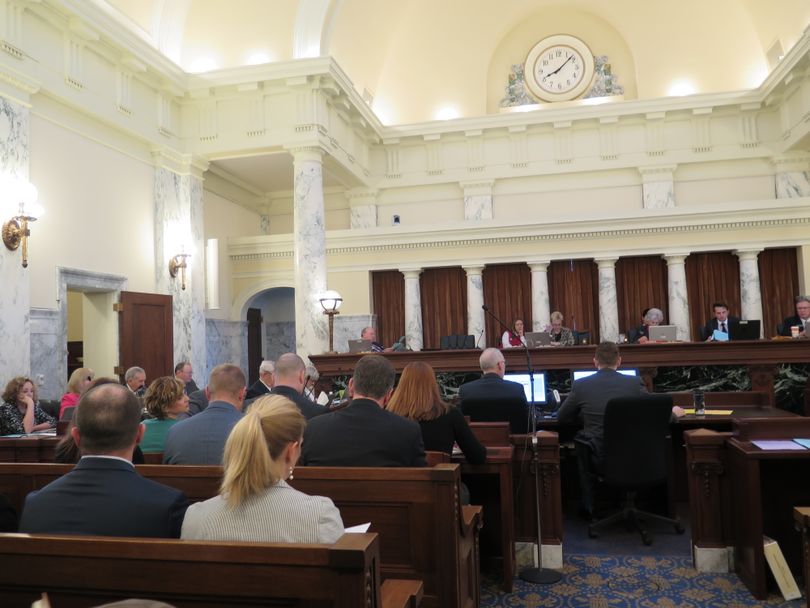After explanation, funding bill for Jeff D settlement wins unanimous support in JFAC

The Joint Finance-Appropriations Committee met this morning to pass “trailer” appropriations – appropriation bills that fund legislation that’s already passing, covering its fiscal impact, and that “trails” behind those policy bills. Among those: Funding for the Jeff D lawsuit settlement, as approved in HB 43.
That funding passed unanimously in the joint committee, with support from Sen. Mary Souza, R-Coeur d’Alene, who had raised questions about it earlier in the Senate. That’s because the plan includes raising eligibility for specified children’s mental health services under Medicaid to 300 percent of the federal poverty level, which Souza said wasn’t necessarily required by the settlement.
Sen. Fred Martin, R-Boise, and JFAC Co-Chair Maxine Bell, R-Jerome, asked state Health & Welfare Director Dick Armstrong to explain.
Armstrong told JFAC, “Today we have, within our eligibility rules, children up to 185 percent. So that’s where we’ve been. Under the settlement there is no income limit attached to the class. The class of children is defined by children with serious emotional disturbance. That’s where we’re starting from is that basic diagnosis.”
“So what we did is we looked at it and realized from history, we basically already had a rule. … It works out to 300 percent under the formula. Above 300 percent, we already require 100 percent of costs to be borne by the family. So what we were looking at was basically a way to fill that gap between 185 and 300. And realized we could leverage the Medicaid program to the maximum degree possible and minimize general funds. So that is where these boundaries came from.”
Between 185 and 300 percent of poverty, there is cost-sharing between the family and program, and that was included in the intent language attached to the funding. Sen. Abby Lee, R-Fruitland, said, “Between 185 and 300 percent, there will be a cost-sharing allowed, so there will be some cost-sharing for these families. I don’t know if the committee was aware.” The intent language says the state “shall implement cost sharing … to the maximum extent that is federally allowable for the expanded population of children.”
There was also another change, based on the latest forecasts for Medicaid utilization: State spending essentially wouldn’t have to go up at all. That’s because there’s sufficient funding in the base appropriation for the Division of Medicaid to cover the program. Both the trailer appropriation and the intent language won the unanimous support of the joint committee, 20-0.
Other “trailer” appropriations approved today included one for SB 1101 on stock water claims; one for SB 1108 on judicial salary increases; one for SB 1113 on staff and compensation at the Commission of Pardons and Parole; and one for DNA testing of registered sex offenders by the Idaho State Police, per SB 1088; all those passed unanimously. The trailer appropriation to the State Independent Living Council for HB 41, the Assistance to the ABLE Act, passed 16-4, with Sens. Bair, Mortimer, Souza and Crabtree voting no.
Today wasn’t the last meeting for JFAC; more trailer appropriations are anticipated, depending on legislative action.
